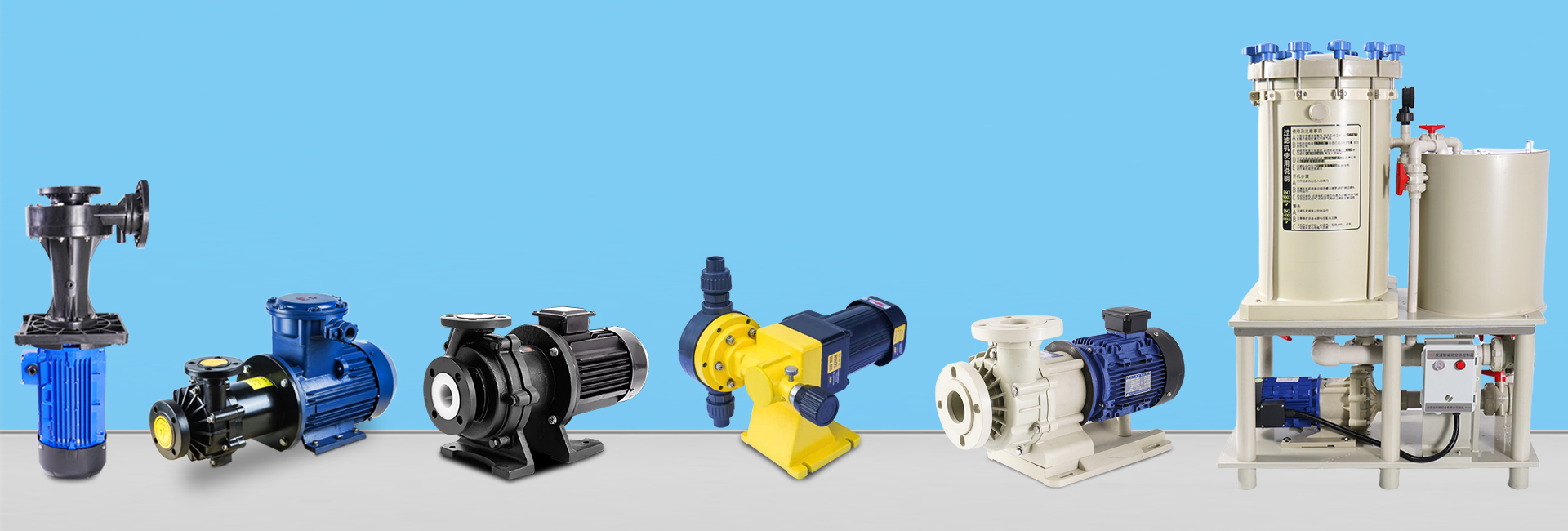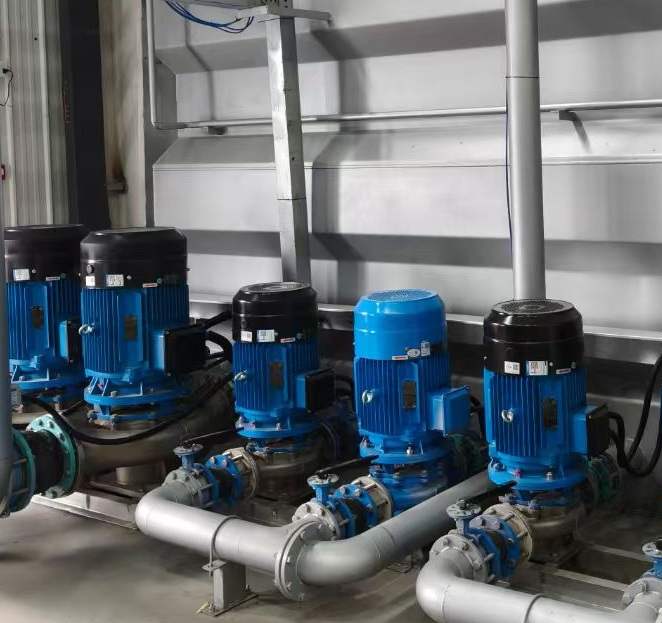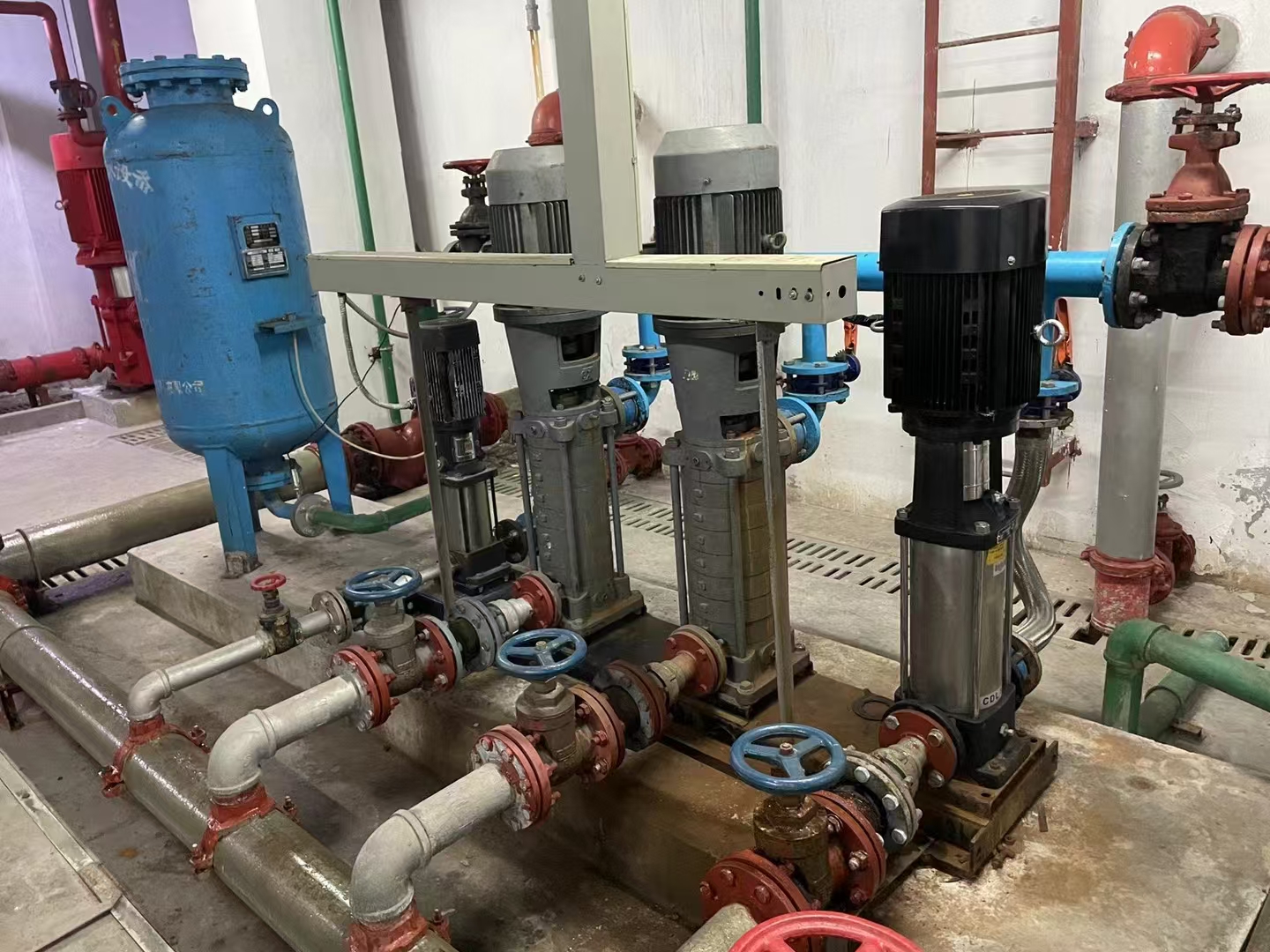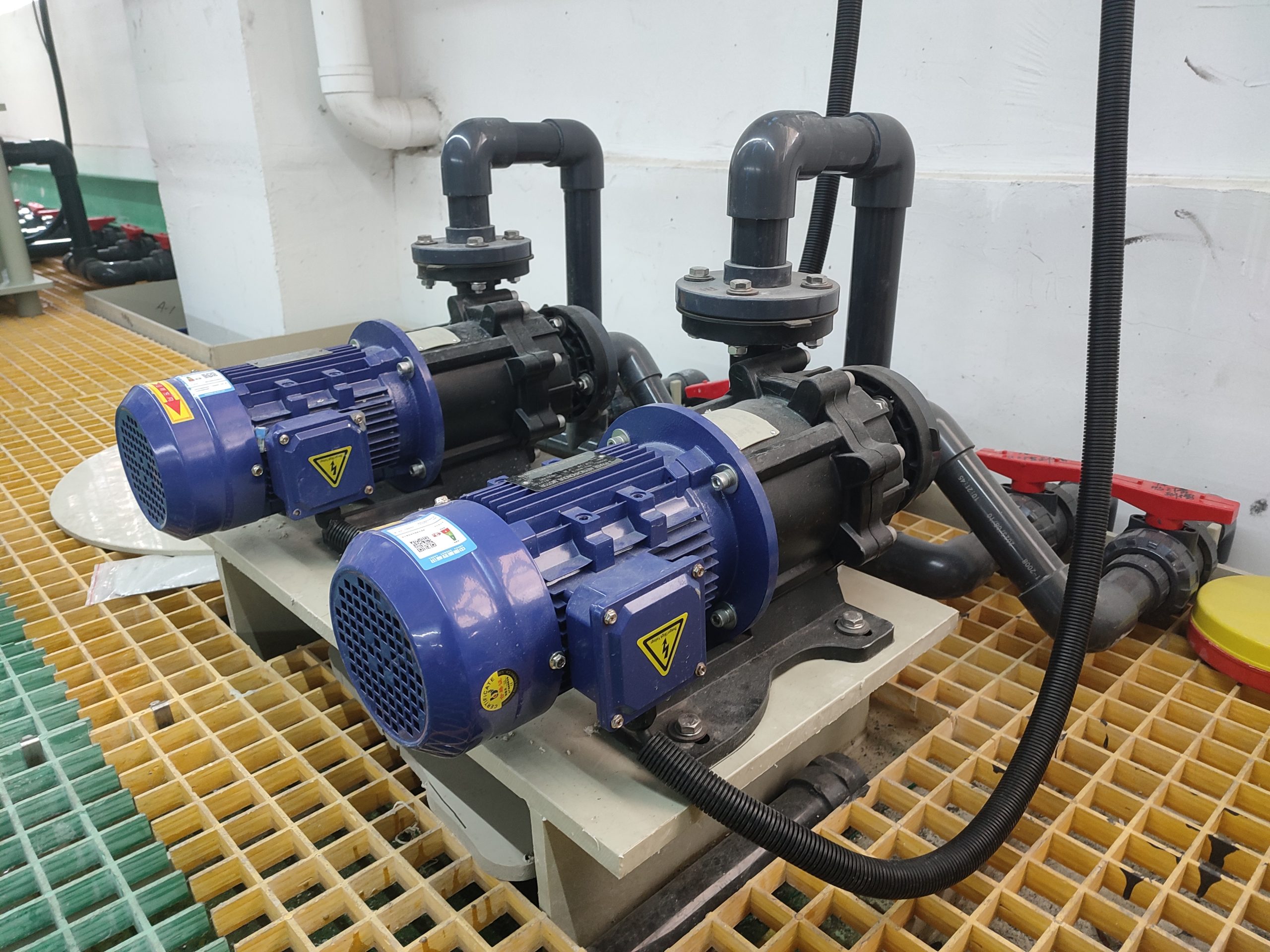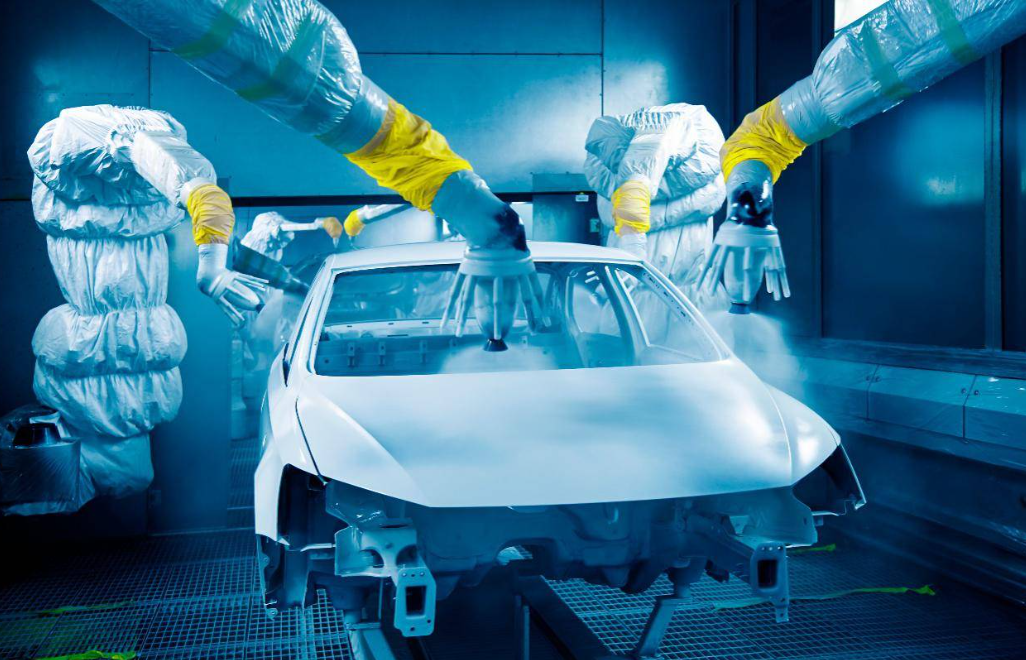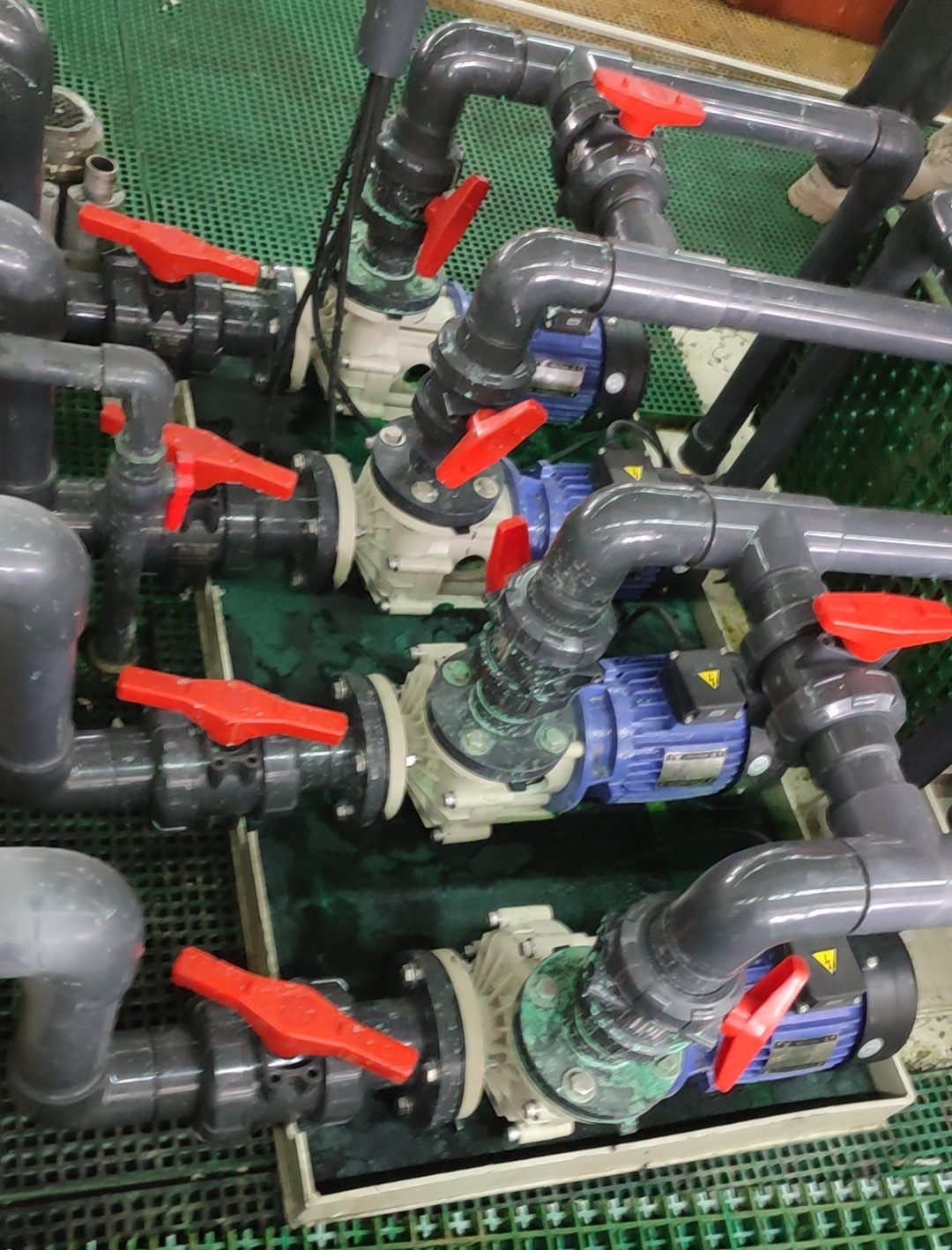1. Overview
In modern pharmaceutical manufacturing, safety, cleanliness, and leak prevention are crucial requirements for all process equipment. During drug production, various corrosive acids, alkalis, organic solvents, and high-purity liquids must be transferred safely. Any leakage not only causes material loss but may also lead to contamination or safety hazards.
The stainless steel magnetic drive pump (also known as a stainless steel magnetic pump or pharmaceutical magnetic pump) has become a preferred solution in the pharmaceutical industry due to its seal-less design, excellent corrosion resistance, and easy-to-clean construction.
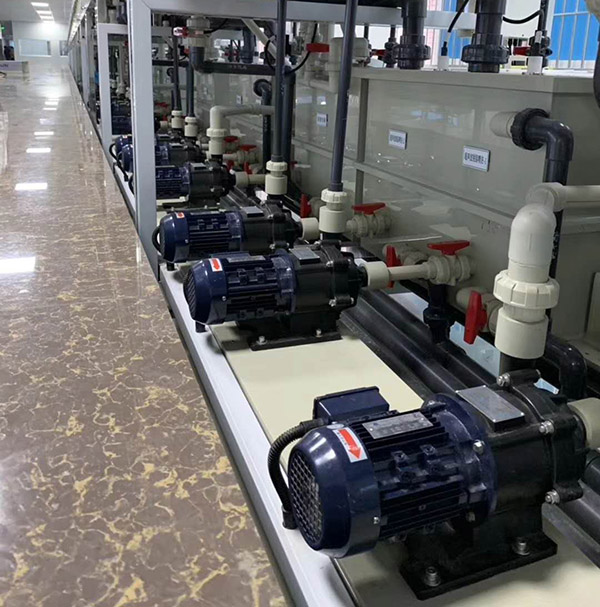
2. Working Principle of Magnetic Drive Pumps
A magnetic drive pump operates through magnetic coupling instead of a traditional mechanical seal. The system consists of three key parts — outer magnetic rotor, inner magnetic rotor, and isolation sleeve:
The outer rotor, connected to the motor, generates a rotating magnetic field.
The inner rotor, connected to the impeller, synchronously rotates under magnetic attraction.
The isolation sleeve separates the fluid chamber from the drive end, ensuring 100% leak-free operation.
Since there is no direct shaft connection or mechanical seal, the stainless steel magnetic pump eliminates leakage issues common in conventional centrifugal pumps — an essential advantage for sterile and high-purity pharmaceutical applications.
3. Typical Applications in the Pharmaceutical Industry
(1) Active Pharmaceutical Ingredient (API) Production
In API synthesis, extraction, and crystallization processes, magnetic pumps are used to handle acidic, alkaline, and solvent-based liquids.
Made from 316L stainless steel, these pumps provide outstanding corrosion resistance and chemical compatibility, preventing solvent vapor leakage and maintaining a GMP-compliant cleanroom environment.
(2) Solvent Recovery Systems
Pharmaceutical plants often use ethanol, acetone, and methanol as extraction or cleaning agents. Magnetic drive pumps perform exceptionally well in solvent recovery applications because:
They are completely sealed, preventing flammable vapor emissions.
They support continuous 24-hour operation with minimal maintenance needs.
They are explosion-proof when used with appropriate motor systems.
(3) Purified Water and WFI (Water for Injection) Systems
In sterile formulation areas, pumps used for purified water or WFI must meet stringent hygiene standards.
Polished 316L stainless steel magnetic pumps with surface roughness ≤ Ra 0.4 μm minimize microbial growth and are fully compatible with CIP/SIP (Clean-In-Place / Steam-In-Place) processes — ensuring compliance with GMP and FDA regulations.
(4) Pharmaceutical Waste and Chemical Disposal Systems
For corrosive or solvent-based waste handling, magnetic drive pumps enable fully enclosed transfer, preventing operator exposure to harmful gases and ensuring compliance with EHS (Environmental Health and Safety) standards.
4. Material Selection and Pump Configuration
| Process Type | Recommended Material | Key Features |
|---|---|---|
| Strong acids & alkalis (HCl, H₂SO₄, NaOH) | 316L stainless steel + PTFE isolation sleeve | Superior corrosion resistance |
| Organic solvents (ethanol, acetone, etc.) | 316L stainless steel | Explosion-proof and leak-free |
| Purified water / WFI | 316L mirror-polished | GMP compliant, easy to clean |
| High-temperature fluids (≤150°C) | 316L + PTFE bearings | Stable operation and low noise |
Additional selection tips:
Ensure proper flow rate and head matching to prevent overload.
Minimize pipeline resistance and use sanitary quick-connect fittings.
Confirm medium viscosity and temperature range compatibility.
Verify CIP/SIP cleaning compatibility for sterile applications.
5. Key Advantages of Stainless Steel Magnetic Drive Pumps
| Advantage | Description |
|---|---|
| Zero Leakage Design | Magnetic coupling eliminates mechanical seal failures. |
| High Cleanliness Level | Smooth internal surface prevents contamination and residue buildup. |
| Corrosion Resistance | Compatible with various chemical and solvent media. |
| Low Maintenance | No seals to replace, reducing downtime and spare parts cost. |
| GMP & FDA Compliance | Suitable for pharmaceutical-grade applications. |
6. Conclusion
With their leak-free operation, high corrosion resistance, and hygienic design, stainless steel magnetic drive pumps have become indispensable in pharmaceutical manufacturing.
From API synthesis and solvent recovery to purified water systems and waste handling, these pumps deliver safe, efficient, and environmentally friendly fluid transfer solutions.
As the industry moves toward stricter GMP and environmental standards, adopting high-quality magnetic drive pumps represents not only a technical upgrade but also a commitment to product safety, sustainability, and operational excellence.

